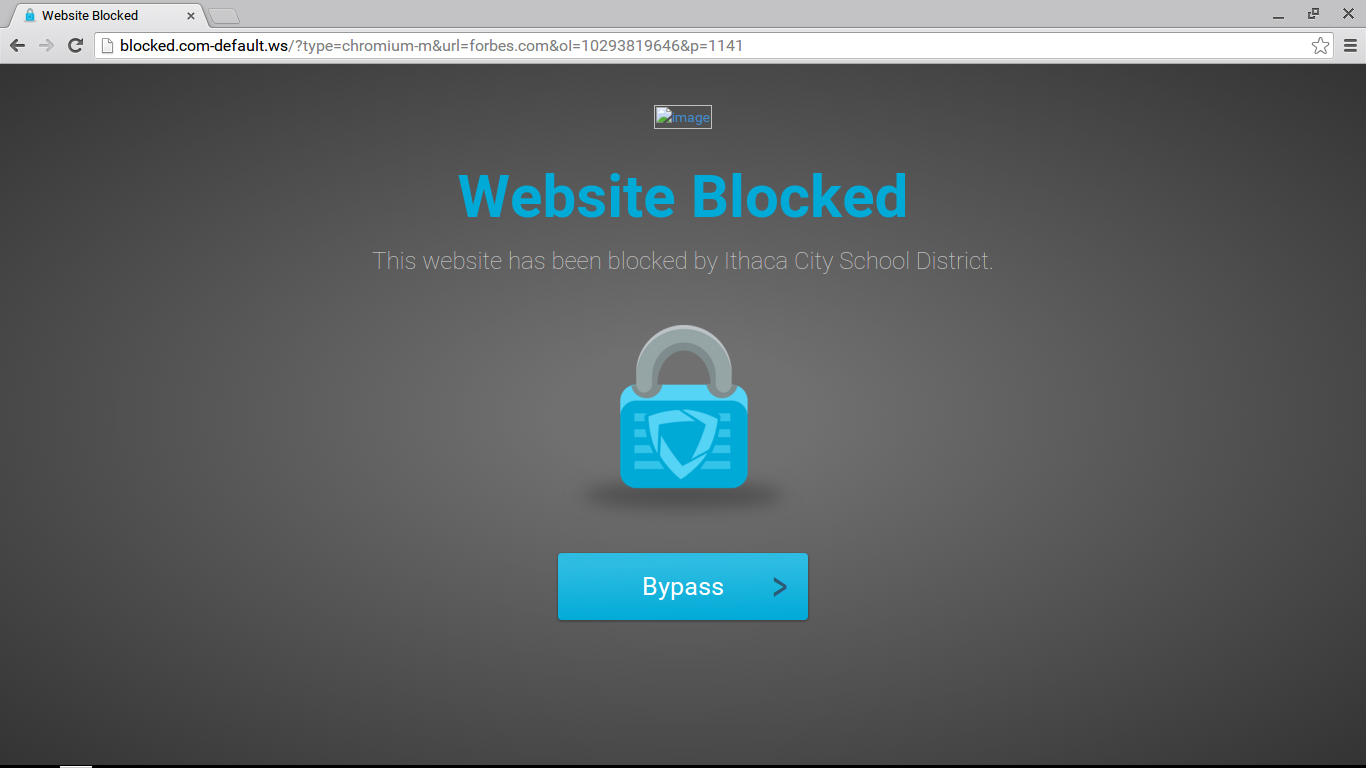Please see our accompanying news article on Chromebooks.
At IHS, when students learned that Quizlet, a popular website that allows users to create and practice flashcard sets, was sometimes blocked on students’ Chromebooks, their reaction was typical. Huh? Why? It was the latest in a continuation of a long run of blocked websites—the BBC, WordReference, and according to some reports, Google itself.
The root of all this overzealous Internet filtering is CIPA, the Children’s Internet Protection Act: a ten-year-old law that requires Web blocking as a condition of federal funding. The law stipulates that contents that are obscene, child pornography, or harmful to minors be blocked on the computers of libraries and schools, including the ICSD, that receive discounts from the federal government.
Because definitions of appropriate Internet access are not clearly defined in this law, ICSD administrators have had to interpret and determine what is “appropriate” and “harmful material” for students. Currently, the ICSD routinely and inexplicably blocks sites that clearly do not fall under the categories prescribed by this law.
The district uses two means of filtering the content on students’ Chromebooks: GoGuardian, a Chrome extension that shows the dark grey screen with the blue lock, and Wi-Fi network filters, which show a light striped screen and the ICSD logo when triggered. Both filter content with too fine a mesh, as some blocked websites like Time Magazine and Quizlet contain material that is neither obscene nor pornographic. Protected, harmless, or innocent websites are accidentally or inappropriately blocked.
It is not only unreasonable to block these websites, but also harmful to learning. One student told us, “Trying to do research for debate is a pain. With so many useful websites blocked, it feels impossible to do thorough research on my Chromebook, or even when I’m logged into my district account at home.” Other students complained that web pages and videos they were told to view were blocked.
Moreover, it is difficult to file a request to unblock a site. The district has allowed teachers to flag certain sites to have the IT department unblock, but very few teachers know how to do so.
This impedes student learning and achievement. Further, the seeming randomness that goes into what is and what isn’t blocked—and where—is peculiar. Why block Time Magazine but not The New York Times? And for that matter, why block Time Magazine in E-building but not in H-building? Imagine if various doors to the quad were randomly locked and unlocked, and you never knew which one to go through.
There is even a case to be made for not blocking websites where there is a grey area regarding whether blocking is taking away a distraction or impeding student accomplishment. “Why is Facebook blocked when 90 percent of the clubs at IHS, including Student Council, use it as a main social media platform?” one exasperated student said. Simply put, while restricting all bad content and letting students view all good content is technologically impossible, the current “technology protection measures” could be better.

However, while complying with CIPA, there is potential freedom and opportunity for administrators and students to collaborate on flexible Internet policies at the ICSD. The first step would be for the school to disseminate a clear procedure that would allow students to request a specific website, Chrome app, or Chrome extension to be quickly unblocked.
Mr. Lisi, ICSD’s outgoing IT director, told The Tattler that “If a student would like access to a specific app, extension or website they should request this through a teacher or librarian.” The Tattler asked Mr. Heurich, the librarian, to unblock Gmail Offline, an app that allows a greater degree of offline Gmail access, early in seventh period one day. By the end of the period, it was installed on his Chromebook. The library staff told him that “Students should make an appointment with Mr. Eckley or Mr. Heurich to have a Chrome app or extension unblocked.”
However, websites could take longer to unblock, as the request must go through the Library and the IT department. A good way to increase students’ access to innocuous but blocked websites would be to allow any teacher, librarian, or any ICSD staff member to unblock a website by only typing the URL and pushing a button.
Even with these ideas implemented, unblocking websites would still be irritating for students and teachers alike. Mr. Trumble said in an interview about what the The Tattler believes should be the second step: “How do we do this and empower you guys to be saying ‘let’s continue to build this.’ ”
While actually blocking and unblocking apps, extensions, and websites isn’t terribly difficult, deciding which ones to block is. What keywords are actually concerning? What reasons for blocking websites are reasonable and which aren’t? And where is what blocking appropriate? Right alongside the access to technology in classrooms we have at our schools, there should always be a discussion between administrators and students about what students should be able to access.
ICSD administrators can collaborate with students to engage in ongoing evaluations of appropriateness to ensure that the Internet policies are flexible and have the fewest possible restrictions on student searches and access while maintaining CIPA compliance. This way, educators can arm their students with Internet and media literacy and equip them to use online research in safe ways both in the classroom at at home.

